In the Quaker community, we engage in regular hand-wringing about why younger generations are largely disengaged from our congregations. Generation X mostly dropped out of the Quaker Church a long time ago without anyone making too much of a fuss; there were still enough solid older Friends to keep the torch aloft. But in the last decade, the problem has grown only worse. Not only are younger people mostly not joining Quaker congregations, but the older generations that have been the spiritual and financial foundation of our communities for decades are actively dying off. As these demographic realities become too fearsome to ignore, we are waking up to the massive decline of the 20th-century Quaker model. Something is broken and we do not know how to fix it. And if we continue this way much longer, we will not survive as a living faith tradition.
Quakers are not alone in this. Virtually all of the “mainline” religious traditions in the United States have been suffering serious decline in the last two generations. We used to live in a society where practically everyone belonged to a Christian denomination as part of their cultural identity. There were Methodist families and Lutheran families, Congregationalists and Episcopalians. Besides the standard flavors of Protestant, there was also a visible (if marginalized) minority of Roman Catholics and Jews. Denominational and religious identities were to a great extent heritage markers. You were a Lutheran because your family was Lutheran; Quaker children were born to Quaker families. Going to church on Sundays was the norm, an unquestioned ritual of an all-American lifestyle.
Faith has become a matter of personal preference and individual identity. Religion is increasingly viewed as a form of self-expression – like tastes in music, art or fashion – or as one of many options for personal enrichment and relaxation – like yoga, meditation or membership at a gym. For many of us, our spirituality is primarily focused on helping us to interact with and get along better in a pluralistic society that is focused on the pursuit of wealth, status and personal achievement.
In this environment, it is not surprising that the phrase “church shopping” has become a part of our lexicon. Faith communities easily become just one more consumer choice, with individuals picking and choosing based on where they feel most “fed” – where they get the most benefits for themselves and their families. It is also not surprising that many churches have succumbed to a strange sort of religious capitalism, explicitly viewing their congregations like businesses, competing for “market share” in a voracious consumer religion market. In retrospect, the rise of the mega church – the big box store of American religion – was virtually guaranteed.
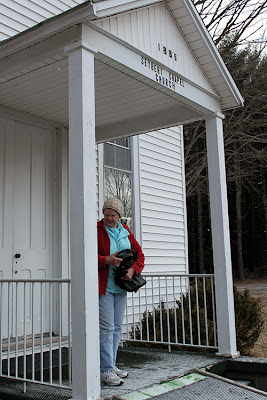 But I do believe that these yearnings are a temptation. I see all around me the consequences of yielding to it: Individuals and congregations that obstinately ignore the wider culture, opting out entirely rather than risking “infection” by the world. Many Christian communities are becoming increasingly irrelevant and out of touch with the real conditions and concerns of their neighbors. We can and do become so caught up in recreating a perfect miniature replica of an imagined “Christian nation” that we make ourselves useless in communicating the gospel in the context of post-modern America.
But I do believe that these yearnings are a temptation. I see all around me the consequences of yielding to it: Individuals and congregations that obstinately ignore the wider culture, opting out entirely rather than risking “infection” by the world. Many Christian communities are becoming increasingly irrelevant and out of touch with the real conditions and concerns of their neighbors. We can and do become so caught up in recreating a perfect miniature replica of an imagined “Christian nation” that we make ourselves useless in communicating the gospel in the context of post-modern America.Many of us have convinced ourselves that our decline as a religious community is primarily due to a failure on the part of the wider culture. They have failed to understand us! This is the way religious movements end: With us – the religious insiders – dismissing and feeling superior to those on the outside – the very people that Jesus teaches us to seek out!
I am grateful that our spiritual ancestors were able to find a living relationship with Jesus Christ in centuries past – but we cannot benefit from their example by simply mimicking them and repeating their words by rote. What we need now are not the forms of the past – all our structures, processes, vestments, liturgies and worship styles. We need the Spirit that inspired them in the first place! All of our time-tested religious traditions are useful when they teach us to walk more faithfully in the Spirit’s teaching – but they cannot substitute for the living presence of the Holy Spirit here and now.

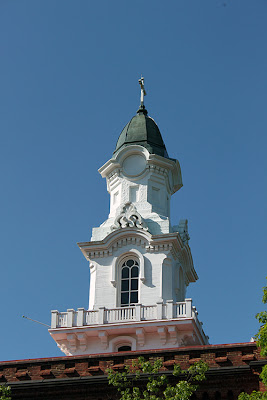
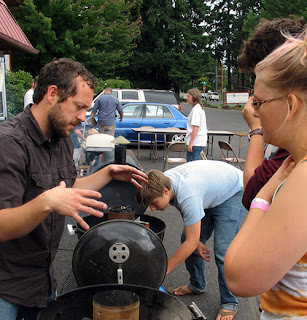
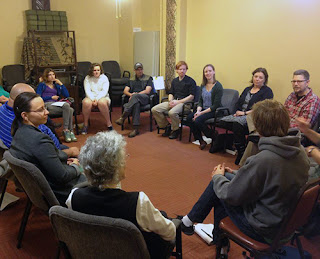
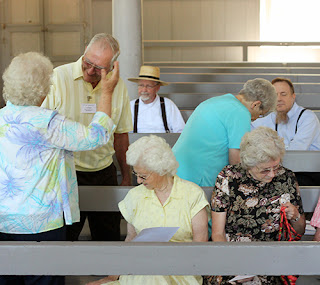
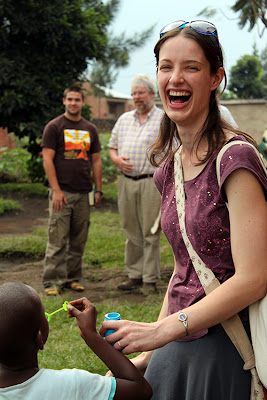
But now it is about being real! We have to listen to spirit, and not just be a part of a comfortable religious culture, because that is what being a Quaker was all about in the first place. I cant tell you how many Quakers I meet every day here in nepal. A girl who is an “atheist” was telling me about the core good part in everyone the “sunshine” inside of her and an old man was telling me about how we have to listen for Truth. There will always be Quakers, as in there will always be people who listen to and follow the holy spirit. (The truth is one and the same always). The challenge is that we have to be real, that we have to actually all be ministers – instead of hoping our faith communities are just going to give us a spiritual product for consumption. I used to be worried that there would be no Quakers in short order. But now im like, well if in thirty years it is just me you and five other people, we will still be on fire with the holy spirit, truth and the inward christ, and really, that is what quakerism is about. It is real, and it is transformation. It is uncomfortable getting that close to truth, and we have to care for each other in our communities so much to do it, but hey that is what it is about. Sometimes I just think, if quakers were REALLY so concerned with the future, then maybe they would be willing to take that terrifying and radical step of following spirit in the present. Lets try this whole continuing revelation thing, listening to and following the holy spirit now, and see how that holy experiment works out.
Thanks for the post! Really enjoyed it!
Micah, you may be interested in this:
http://universalistfriends.org/library/militant-seedbeds-of-early-quakerism
in particular, George Fox’s ‘Fifty-Nine Particulars’:
‘It was at this critical stage that Fox produced the most revolutionary political programme ever published by a Quaker leader, calling not only for the standard Leveller package of toleration, abolition of tithes and law reform, but also for a huge programme of public ownership by way of the wholesale expropriation of church and crown lands, royalists’ property, and estates once held by the monasteries and now enjoyed by the gentry. This, coupled with the confiscation of manorial profits, would finance a radical new system of poor relief and the maintenance of a standing army, which Fox saw as the guarantee of the revolutionary Commonwealth. But the restored Rump failed to respond or produce the liberties demanded. (And Friends did not include this pamphlet, To the Parliament of the Commonwealth of England: Fifty-nine Particulars, in his collected works).’
http://universalistfriends.org/quf2002.html
I suggest Quakers can forge an influence in the world and gain support by being the radical force for peace and equality that they are; that people will come to Quakerism after understanding what Quakers do. This doesn’t make your questions irrelevant; it doesn’t mean decline in numbers will be reversed in the near future; but it does mean that there is a chance of increasing depth and unity in the community.
I have been suggesting to my meeting that we should change the name of the Society to the Spiritual Society of Friends. I don’t think I am being taken seriously, which is not unusual considering I like to float all sorts of ideas. I have several plans afoot to become more relevant in the community at large and hope some of them bear fruit. After all I don’t want to be chopped down or cursed like a barren fig tree. I think we know how to be relevant: Love your neighbor. We just don’t want to pay the price.
“Church shopping” has an undeserved bad name; people do need to find something they can honestly accept as truth. “Because my grand-daddy believed it” was hardly a better means of accepting a religious affiliation!
I myself continue to feel out-of-place in what honest labelling would demand that we call [something like] “The Religious Society of Politically Active Atheists.”
I joined the Society of Friends — or thought I had — and though I can’t live in the world-as-understood-by-Early-Friends, I still think they had the basic things right. So I can’t, like my wife, up and join the Episcopalians (although her bunch are lovely people and I continue to enjoy participating whenever they do Bible study.)
But Quaker practices done by people who haven’t met God and don’t care to! — Fox ought to be spinning! I could imagine him standing on a folding chair to give them all heck! — and being dealt with, of course, as ‘a Difficult Friend.’ [If I didn’t have God I’d be disturbed by all this!]
You write, “We used to live in a society where practically everyone belonged to a Christian denomination as part of their cultural identity.” That is true of the U.S. from the end of the 19th century onward. But interestingly enough, at the time of the War of Independence, and through the early 19th century, only about ten per cent of U.S. adults belonged to churches. This was because churches had strict disciplines (our own books of disciplines from that period are good examples) and not everyone cared to live up to them. Many people who were not members, nevertheless attended churches of one sort or another.
Because churches did have such high standards of discipline, the churches, and those who were members, were respected in a way that they no longer are today. They were influential in those days because they were seen as a moral voice, and not just because they organized as special interests.
Yet another wrinkle of history worth pondering —
Marshall: That’s really interesting, and not something I realized. Thanks for that historical perspective.
Do you (or others) have any insights on what it might look like for us today to establish congregations/networks that operate based on greater community solidarity and mutual accountability? How does this work in our society which is so focused on the happiness of the individual, often at the expense of the greater good?
At 73 years of age, I experienced those supposedly “good old days” for religions and churches. Do tell, what of enduring value was so good about that time?
Why are most religions and churches in decline? One that I see as a member of the scientific community: Religious groups asserting the divine truth of what are in fact pre-scientific speculations about the origin and nature of the universe and of life on the earth. In conversations with colleagues I learned that many had been raised in a church, but the church had made their continuation untenable by rejecting a massive array of scientific findings about creation and evolution. (Recently, sophisticated DNA analyses of bone pieces from widely disbursed locations on the earth identified them as coming from homo sapiens of 11-13,000 years ago. So much for Adam and Eve and the Garden of Eden as THE reality.
I share your concern about the the Religious Society of Friends going forward. The meetings in the DC metro area with which I am familiar could be more accurately designated as of the Meditative Society of Friends. The spiritual base has virtually disappeared. Can the testimonies stand and be vibrant without that (or another) spiritual base?
What is the nature of a vibrant spiritual theology that is consistent with science and provides a solid base for transformation — that it may be on earth as it is in “heaven”?
It’s funny how the same problem can lead people to opposite conclusions. I actually catch myself (almost!) wishing that Christians were still a persecuted minority. It’s easy to look at shrinking church membership, or at the rapidly disappearing RSoF, and lament, as I often do.
But it is good to recall that the gate is narrow and the way is hard that leads to salvation. Even Jesus himself only had a few dozen followers at his death. As people feel more comfortable being unaffiliated, perhaps the only ones who claim Christ will be those actually interested in following Him.
~Adria
Micah, you asked, “Do you (or others) have any insights on what it might look like for us today to establish congregations/networks that operate based on greater community solidarity and mutual accountability? How does this work in our society which is so focused on the happiness of the individual, often at the expense of the greater good?”
I would respectfully suggest you look at examples of such communities that already exist. In the Catholic and Eastern world, this would primarily mean the monasteries, although I’d add in lay bodies such as the Catholic Worker movement as marginal examples. In the Anabaptist world, it would include both the Amish communities, which are tightly knit groups of families that live separately, and the Hutterites, who have lived in true communes since the eighteenth century. In the Protestant world, there are fundamentalist churches that are just as tightly knit and mutually accountable and altogether impressive as the Amish. (There is also the Bruderhof, a group that tried to be Hutterite but couldn’t quite get into the totality of it. They’re to the actual Hutterites rather as liberal Friends are to more traditional Friends.)
All these groups have worked out ways of successfully living an alternate, tightly communitarian, mutually accountable lifestyle in the midst of the blandishments of consumer America. It is the fact that they succeed, at least for their core membership, and that they do so because their life style is grounded in a deep sense of what Christ requires, that makes them (IMHO) worth studying.
There are books aplenty on all of these groups, but you might also want to pay them personal visits.
We can keep talking about this if you wish!
Thank you for an interesting post. I must confess that always read items about a ‘decline in religion’ coming from the USA with surprise. According to data all round church attendance in the USA is 44%, the highest for any country with faith groups other than ‘blanket’ Catholicism. The UK figure of 27% is, I suspect envied by church attenders in Japan coming in at 3%. The point is that church attendance, be it meeting or other form is not a measure of faith nor of belief, just church attendance. From this side of the Atlantic the state of affairs in the USA looks very healthy.
All data from http://www.nationmaster.com/graph/rel_chu_att-religion-church-attendance